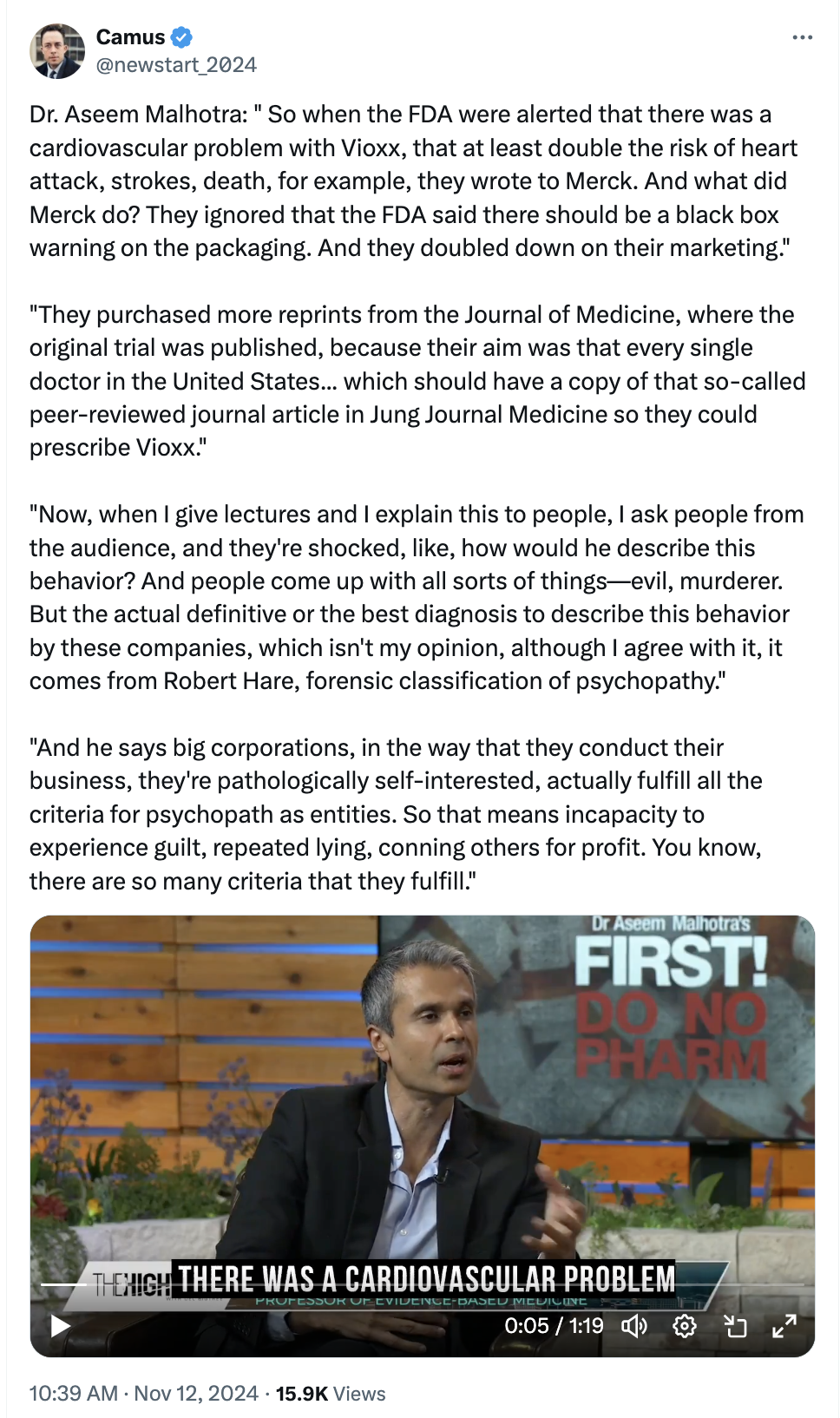Fascinating video. This woman recently started seeing the DNC and progressive left for what they are. She describes the experience of scales falling from her eyes.

I created a transcript of her 3-minute video:
I feel like I have a unique perspective with this whole election thing. Because I used to be very, very far left, like I was one of the people having a fucking mental breakdown in 2016 when he won, right? And I didn't even like him up until six months ago, when it became very obvious that they were staging a coup and tried to assassinate him. And then some shit started clicking. So I'm still very new to this whole side of things. But the thing is, when I was very far left, like, radically far left, I thought I knew what was going on. I genuinely believed I was informed. I thought I knew better than everybody else, and that's what these people think, too. And the thing is I would get so triggered and so angry when people would question me because I didn't actually know what the hell I was talking about. I thought I did, but really I didn't actually know any policies. I didn't actually know any politics. All I actually knew was what I had seen online, in mainstream media, and because everybody was saying, I just assumed it had to be right, right. And I think where a lot of this comes from is like, people just don't want to be wrong. Like, it's humbling and it's embarrassing to acknowledge that you were wrong or that you didn't know as much as you thought you did, but I would get so defensive and fly off the handle when and whenever somebody would question me, because I didn't actually have any talking points, and the talking points I did have were inaccurate.
But I didn't want to be wrong so I just kept fucking regurgitating. I just kept echoing the same shit that I was hearing over and over again, and that's what people are still doing. And I I don't blame them. I'm not mad at them, because really, I mean, if you're only exposed to that, then that's what you're gonna believe.
But it's crazy to be on the other side of it for this election and see just how misinformed people are, and they will argue with you, and I won't have a card, because they will argue with you till they're blue in the face because they are just so convinced that they're right, and I was one of those people, and the fear they're feeling is very real. I'm not invalidating the fear. I'm just it's just that the fear is not founded in anything factualbecause it's not the things that they're scared about. It's not going to happen. It didn't happen last time, it's not going to happen this time.
And it's just it's so crazy. It's like being the sober person at a party full of drunk people.










